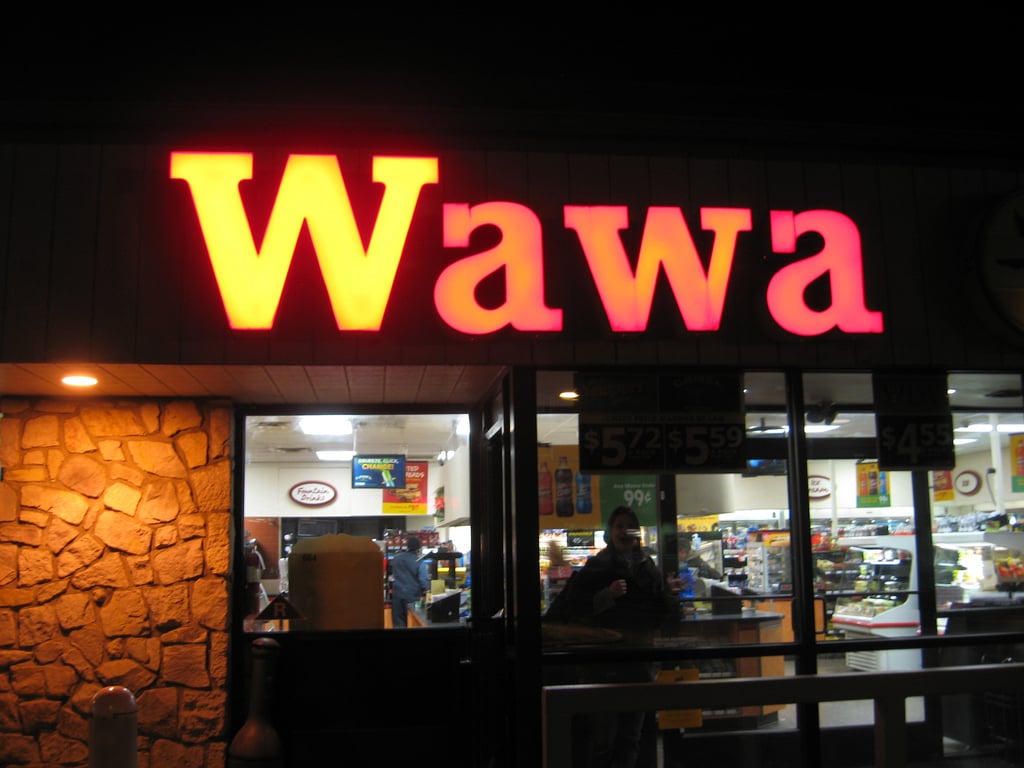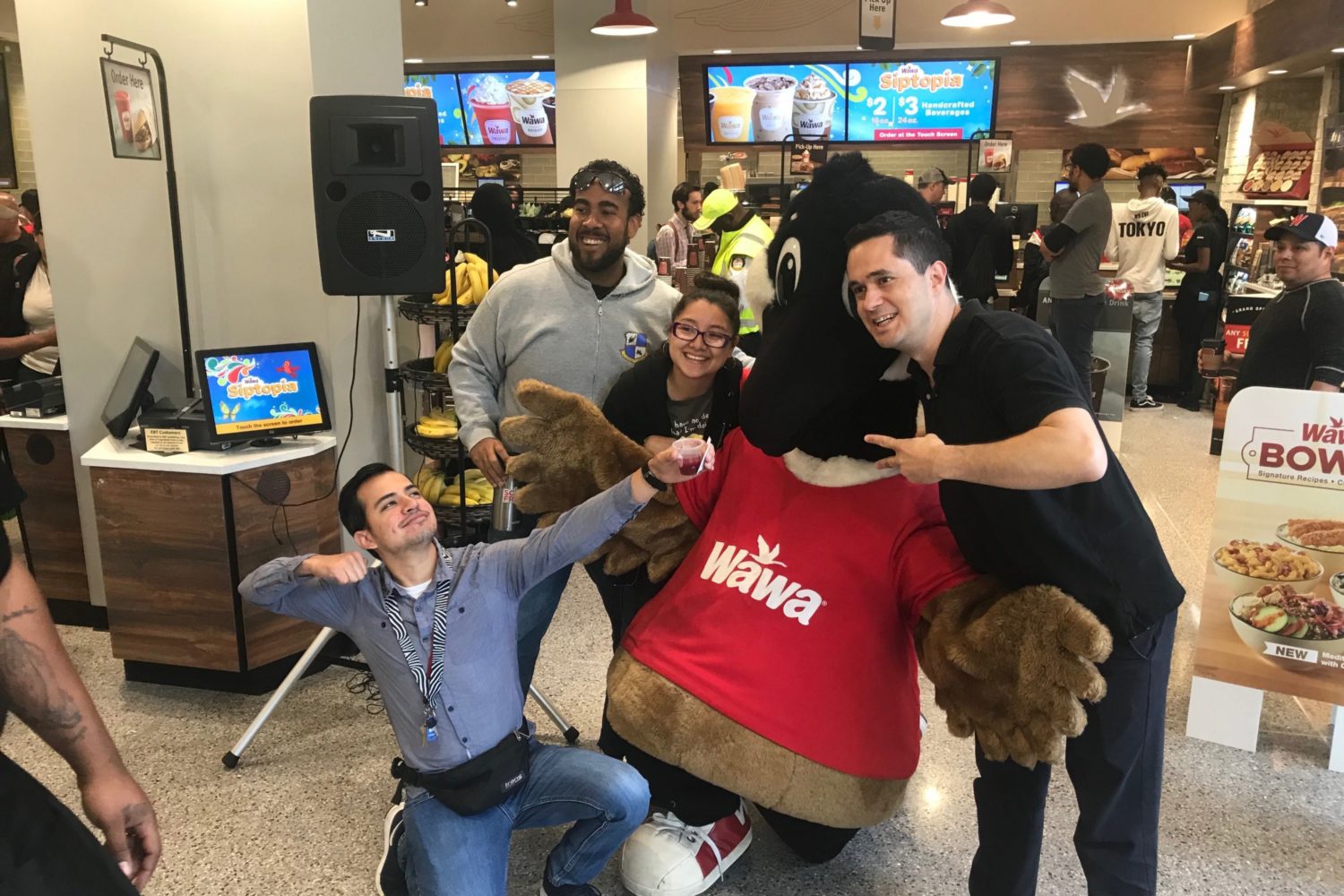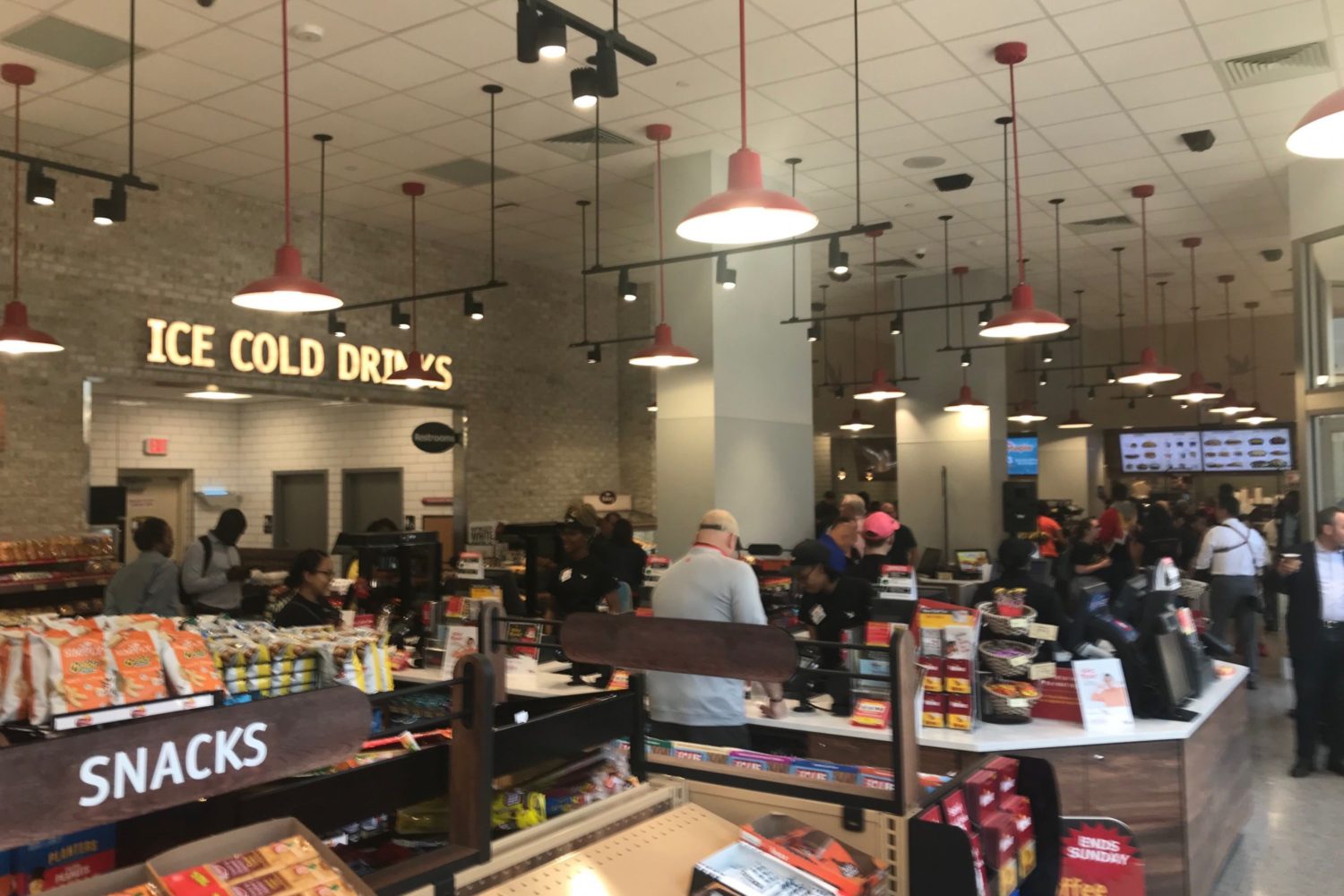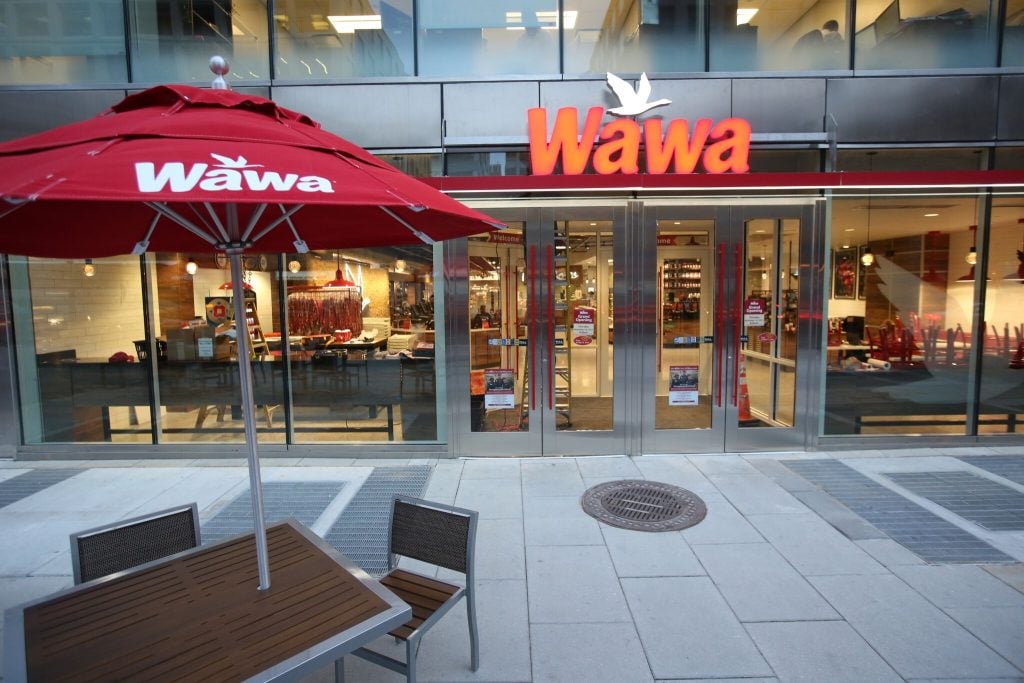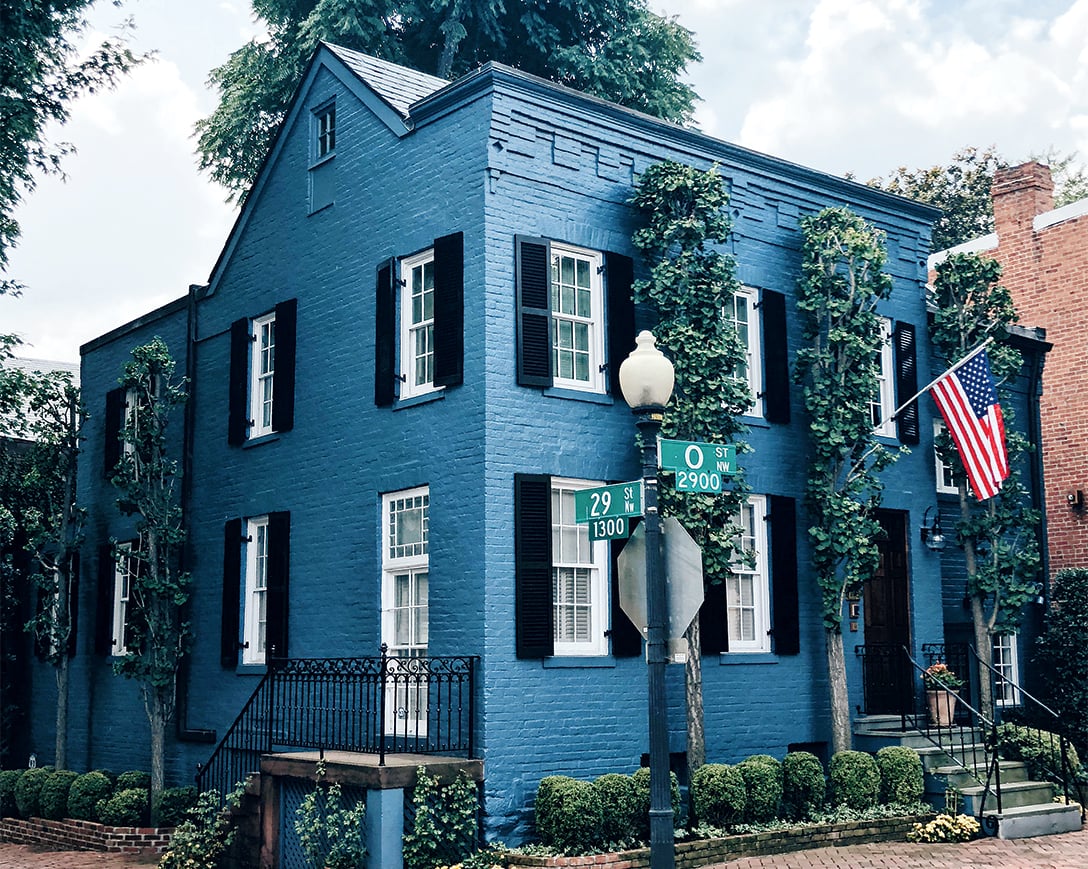When I think about going to Wawa, this is what I remember: Sitting in my dad’s Merc while he ran inside for a baby-blue pack of Merit Ultra Lights. I remember six-inch subs double-wrapped and packed into the red Igloo Playmate nestled between my sister and me in the backseat—we’d each have one cold thigh, because we were in our swimsuits for the beach, and the plastic cooler let the cold out. I remember mixing the Cherry and Coca-Cola Icee flavors to make a Cherry-Coke Icee, which you couldn’t do at Bradlees because the machine there was behind the counter and the saleslady made you choose. A few years later, I would put Malibu in that Icee behind the dumpster fence and walk to the school parking lot or the baseball field just to see who else had walked to the parking lot or the baseball field. Besides the fancy Italian deli where nothing was labeled with prices, Wawa was the only store I could walk to from my standard-issue New Jersey ranch house. It was where my mom took me for a Chipwich if I got a good report card. Now, when I go home for a visit, my husband knows to expect a stockpile of Wawa Diet Iced Tea Lemonade to return with me.
I could walk you through my Wawa from memory, lead you ten steps across the brown terrazzo-look tiles straight to the Gatorades or the shelf of sun-bleached Teen Beats with my eyes closed. I could tell you my order without looking at the menu.
The suburban convenience store, open til 11, lacks the romance of the bodega or the five-and-dime, variations on the corner-store that lend their customers a sense of place and time. The bold red serif—it was serif then—of “Wawa” conveyed almost the opposite: you are nowhere special. Its flying goose logo was bland and brown and, in a town whose soccer fields were carpeted in geese shit, kind of gross. Brooklyn has its bodegas. The ‘50s had five-and-dimes. Suburban New Jersey has soccer fields, and it has Wawa towns.
That the low-brow notes of our food worlds can trigger warm memories makes sense to me. Little Debbie Pecan Spinwheels and Nutty Bars and Star Crunch remind me of what it felt like to be a kid, before I moved away from home and learned that I wasn’t from nowhere. My extensive experience with the Little Debbie snack range—all available on the second shelf of the center aisle of my Wawa—said a lot about where I was from. Because if you grew up in a certain kind of town at a certain moment before cell phones and debit cards, Wawa was always on the way home. Even when I was 17 and finally driving myself, my friends and I would go and park to see who else had parked. It was ritual.
Wawa has been advancing through the Northeast Corridor for a while, but it’s finally come for the nation’s capital. Earlier this month, they released some renderings for the first DC Wawa, and it looks nothing like its suburban equivalent. The convenience store will have subway-tiled walls and sidewalk seating and free wi-fi. The cash-wrap looks a pristine and gleaming white: no basket of soft pretzels, no hooded warmer of taylor ham and egg sandwiches. Muscle memory won’t take me to the Gatorades when I walk in. I get why.
How a place feels is more important than it used to be—it’s why Whole Foods can sell a 12-pack of La Croix for two dollars more than it costs at Walmart. The places we shop in say something about us: our morning coffee isn’t just the first thing we drink, it’s the first story of our day. It’s why DC Wawa will serve up exposed brick, along with nitro cold-brew. We’re buying more than we transact for.
So the DC Wawa will be sleeker and cooler and probably taste better, but it won’t be a place to grab Half & Half in your pajamas while your mom waits in the running car, and it won’t be the only place with lights on when it gets late. Wawa won’t be the hub of your small world. It won’t have parking spots, or rituals.
It’ll be Wawa, but it won’t take us back to our Wawa towns.

